
Giovanni Giorgio Moroder is an Italian composer and music producer. Dubbed the "Father of Disco", Moroder is credited with pioneering euro disco and electronic dance music. His work with synthesizers had a large influence on several music genres such as Hi-NRG, Italo disco, synth-pop, new wave, house and techno music.

Sparks is an American pop and rock duo formed by brothers Ron (keyboards) and Russell Mael (vocals) in Los Angeles. The duo is noted for their quirky approach to songwriting; their music is often accompanied by sophisticated and acerbic lyrics—often about women, and sometimes containing literary or cinematic references—and an idiosyncratic, theatrical stage presence, typified by the contrast between Russell's animated, hyperactive frontman antics and Ron's deadpan scowling. Russell Mael has a distinctive wide-ranging voice, while Ron Mael plays keyboards in an intricate and rhythmic style. Their frequently changing styles and visual presentations have kept the band at the forefront of modern, artful pop music.

"I Feel Love" is a song by American singer and songwriter Donna Summer. Produced and co-written by Giorgio Moroder and Pete Bellotte, it was recorded for Summer's fifth studio album, I Remember Yesterday (1977). The album concept was to have each track evoke a different musical decade; for "I Feel Love", the team aimed to create a futuristic mood, employing a Moog synthesizer.

Live and More is the first live album recorded by American singer-songwriter Donna Summer, and it was her second double album, released on August 28, 1978 by Casablanca Records. The live concert featured on the first three sides of this double album was recorded in the Universal Amphitheater, Los Angeles, California in 1978.
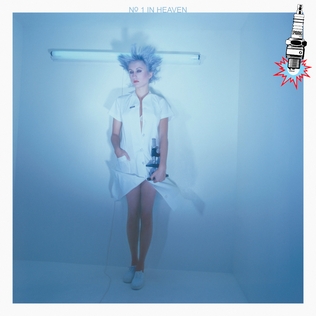
Nº 1 in Heaven is the eighth studio album by American rock band Sparks. Recorded with Italian disco producer Giorgio Moroder, the album marked a change of musical direction for the group and became influential on later synth-pop bands.
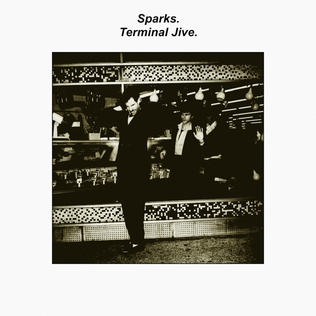
Terminal Jive is the ninth album by the American rock band Sparks and the second recorded with Giorgio Moroder. The album has a disco-vibe like its predecessor but featured fewer synthesizers, opting instead for more electric rock guitar, resulting in a new wave sound. The album was produced by Moroder and Harold Faltermeyer, the latter of whom is claimed to have produced the majority of the album.

Whomp That Sucker is the tenth album by the American rock band Sparks, released in 1981.
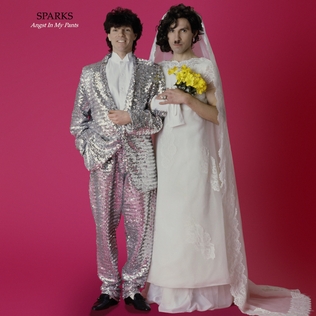
Angst in My Pants is the eleventh studio album by American pop and rock band Sparks. The album was released in 1982 by Atlantic Records in both the US and UK, and this was the sixth overall label that the band was signed to in the US, and, for the first time since the mid-1970s, the band would be signed to the same label in both the US and UK for three consecutive studio albums.
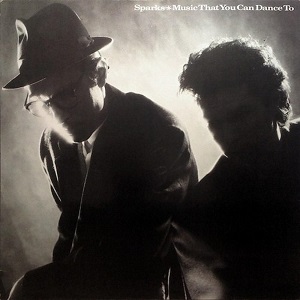
Music That You Can Dance To is the fourteenth studio album by American pop band Sparks, released in September 1986 by MCA Records in the US and Consolidated Allied Records in the UK, two years after their previous studio album, Pulling Rabbits Out of a Hat (1984).

Plagiarism is the 17th album by American rock band Sparks. It is a tribute album of sorts featuring new alternate versions of some of their best known songs.

Lil' Beethoven is the 19th album by the American rock band Sparks, released on November 26, 2002. The album was a radical musical departure compared to their previous works. The band only used strings, piano, and voices but sporadic drums: the result was both classical and pop music.
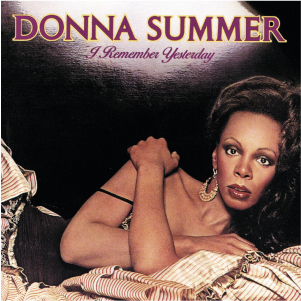
I Remember Yesterday is the fifth studio album by American singer-songwriter Donna Summer. It was released on May 13, 1977, seven months after the release of her previous album. Like her previous three albums, it was a concept album, this time seeing Summer combining the recent disco sound with various sounds of the past. I Remember Yesterday includes the singles "Can't We Just Sit Down ", "I Feel Love", the title track, "Love's Unkind" and "Back in Love Again". "I Feel Love" and "Love's Unkind" proved to be the album's most popular and enduring hits, the former of which came to be one of Summer's signature songs.
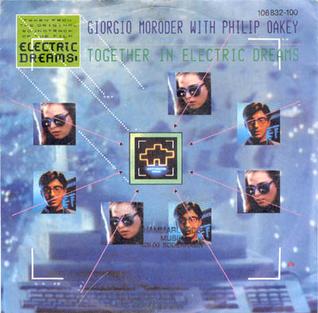
"Together in Electric Dreams" is a song by the British singer and composer Philip Oakey and Italian composer and producer Giorgio Moroder. It was written by Oakey and Moroder and recorded for the original soundtrack of the film Electric Dreams (1984). It later formed part of the joint album Philip Oakey & Giorgio Moroder, released in 1985.
The following is a comprehensive discography of Sparks, an American rock and pop music band formed in Los Angeles in 1970 by brothers Ron (keyboards) and Russell Mael (vocals), initially under the name Halfnelson. Best known for their quirky approach to songwriting, Sparks' music is often accompanied by cutting and acerbic lyrics, and an idiosyncratic stage presence, typified in the contrast between Russell's wide-eyed hyperactive frontman antics and Ron's sedentary scowling.

"Beat the Clock" is a disco single by the American rock duo Sparks, which was released in 1979. It is named after the game show, Beat the Clock.

Foxes is the soundtrack to the 1980 film of the same name, starring Jodie Foster, Scott Baio, Sally Kellerman, Randy Quaid as well as The Runaways' lead singer Cherie Currie. The double-album was released on the disco label Casablanca Records.

Ooh, La, La is the debut and only studio album by American singer, Suzi Lane, released in 1979 through Elektra Records. The album was produced by Giorgio Moroder who was also producing Donna Summer at that time. Lane said she met Summer at the recording studio and that she was influenced by the "high-energy electronica" sound pioneered by Moroder and Summer. The title track along with the song "Harmony" reached number one on Billboard magazine's Hot Dance Music/Club Play chart. The dance hit was number one for one week then remained on the chart for six months.

"Right Here, Right Now" is a song recorded by Italian producer Giorgio Moroder, featuring the vocals of Kylie Minogue, for Moroder's studio album Déjà Vu. The song had a minor impact on singles chart in Europe and attained the top position of the US Dance Club Songs.

"Déjà Vu" is a song by Italian disc jockey producer Giorgio Moroder, featuring vocals from Australian singer Sia. The song is the third single on Moroder's 2015 album, Déjà Vu. It was released on 17 April 2015, as a digital download via iTunes.
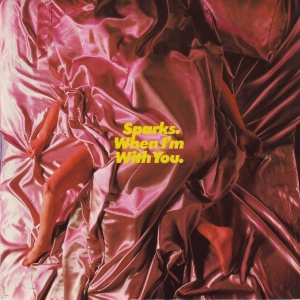
"When I'm with You" is a song released by Los Angeles band Sparks. The song relies on disco and new wave as its two main genres with rock guitars audible throughout the song. The song did not chart on any Billboard charts, but was Sparks' only Top 40 single in Australia, where it peaked at number 14, whilst it peaked at number 1 in France for six weeks. It is not known who produced this song as Giorgio Moroder produced it alongside Harold Faltermeyer, with the latter claiming to have produced much of the album. Keith Forsey, best known as producer for Billy Idol in the 1980s and then resuming in 2006, and for writing several other works including "Don't You " and "Flashdance... What a Feeling" among others, played drums on the song. The B-side is an instrumental version of "When I'm with You".



















